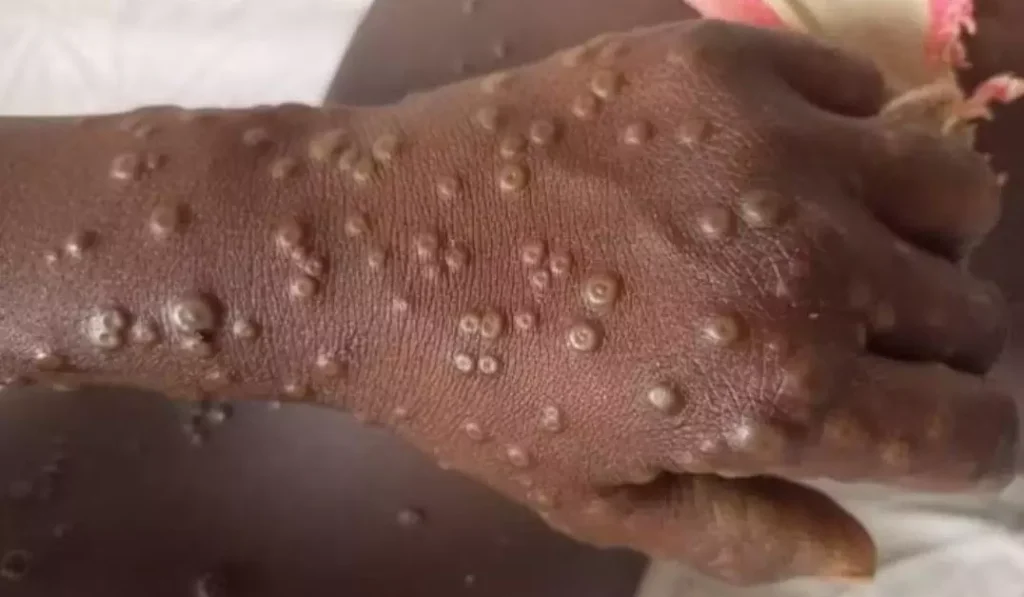Africa now requires over $220 million in urgent funding to maintain and expand its response to the mpox outbreak, which has continued to grow within and beyond the continent. This critical funding gap was highlighted in a joint announcement released on Thursday by the Africa Centres for Disease Control and Prevention (Africa CDC) and the World Health Organization (WHO). The agencies jointly unveiled an updated Continental Response Plan aimed at curbing the spread of the virus while transitioning to a long-term, sustainable containment strategy.
The revised strategy lays out a comprehensive roadmap that prioritizes outbreak control, the expansion of vaccination efforts, and the integration of mpox response into general health systems. According to the agencies, filling the funding gap of over $220 million is necessary to ensure timely implementation of interventions across affected regions.
“Across countries and partners, over US$220 million is needed to fill funding gaps for the mpox response,” the statement emphasized, underscoring the urgency of the situation.
Alarming Spread and Renewed Global Attention
The updated Continental Response Plan aligns with WHO’s broader global strategy to reduce and potentially halt human-to-human transmission of the mpox virus. According to the latest data, more than 60 countries reported mpox infections during the first two months of 2025, with the majority of both infections and deaths recorded in African nations. This worrying trend prompted both WHO and Africa CDC to call for a more coordinated, well-funded continental strategy.
In recent years, mpox, a viral illness known to cause painful skin lesions and other flu-like symptoms, has transitioned from a traditionally zoonotic disease to one with sustained human-to-human transmission. Historically transmitted through contact with infected animals, mpox has evolved to spread efficiently between people, particularly through close physical and sexual contact.
New Variants Driving Continent-Wide Emergency
In 2022, a specific strain of the virus, clade IIb, began to spread globally, predominantly via sexual transmission. More recently, in late 2023, a newer and even more transmissible strain, clade Ib, started spreading through sexual networks, household contacts, and broader close-contact routes.
By August 2024, clade Ib had already crossed borders from the Democratic Republic of the Congo (DRC) to at least four neighboring countries, leading Africa CDC to declare a Public Health Emergency of Continental Security. The WHO Director-General also classified mpox as a Public Health Emergency of International Concern in the same month. Since then, this strain has been reported in 28 countries around the globe, igniting international concern.
Localized Transmission Worsens Across Africa
While mpox cases outside Africa are largely attributed to travel-related exposure, the situation on the continent has taken a more troubling turn. Transmission has now become localized in a growing list of countries. Originally centered in the DRC, mpox transmission has since been documented in Burundi, Kenya, Rwanda, Uganda, and most recently in South Africa, South Sudan, the Republic of the Congo, the United Republic of Tanzania, and Zambia.
The escalating spread has been compounded by poor health infrastructure, insecurity in affected areas, and limited access to critical resources such as vaccines and diagnostic tools. Despite the increase in regional and global assistance—particularly to the DRC—health authorities warn that without adequate funding, the situation could spiral further out of control.
A Comprehensive Plan: Ten Pillars for Response
To guide the continent’s response, the updated Joint Continental Mpox Plan lays out ten strategic pillars. These include:
-
Coordination
-
Risk communication and community engagement
-
Disease surveillance
-
Laboratory capacity building
-
Clinical management
-
Infection prevention and control
-
Vaccination programs
-
Scientific research and innovation
-
Logistical support and supply chains
-
Continuity of essential health services
This structured approach ensures that both immediate response actions and long-term solutions are addressed concurrently.
Vaccination Campaign Progressing Slowly
Vaccination remains a cornerstone of the mpox response, but progress has been uneven. To date, over 650,000 vaccine doses have been administered in six African countries. Of these, 90% have been deployed in the DRC, which remains the epicenter of the outbreak.
In total, more than one million doses have been distributed to ten countries, with international agencies continuing to work to secure additional supply. However, logistical issues, distribution challenges, and vaccine hesitancy in some regions have slowed wider rollout.
Boosting Diagnostic Capacity Amid Conflict
Africa CDC and WHO reported major strides in expanding diagnostic infrastructure, especially in the DRC. As of late 2023, only two laboratories in the country could test for mpox. Today, that number has grown to 23 across 12 provinces, significantly boosting national testing capacity.
Additionally, new near-point-of-care diagnostic tests are being introduced in the DRC to accelerate case identification and containment. These rapid tests are expected to further increase testing capacity and reduce response time in areas with ongoing community transmission.
Conflict and Underfunding Threaten Gains
Despite these gains, significant challenges remain. Ongoing armed conflict and general insecurity in eastern DRC—where mpox prevalence is highest—continue to hamper public health efforts. Humanitarian aid cuts have also reduced access to healthcare services, further complicating the response to the outbreak.
Health authorities warned that without urgent international assistance to bridge funding shortfalls, the response could stall. Such a delay would not only increase the burden of disease but also heighten the risk of international spread, particularly from poorly contained hotspots within Africa.
A Call for Coordinated Global Support
Africa CDC and WHO have reiterated their commitment to supporting national governments and regional bodies in managing the crisis. They urged donors, development agencies, and private sector actors to scale up financial and technical support to ensure that the mpox outbreak is brought under control.
As the virus continues to expand its reach and mutate, experts stress that the continent cannot afford to delay. Without immediate intervention and sustained funding, the fragile progress made so far risks being undone, potentially exposing millions to a disease that remains debilitating and disfiguring.
The clock is ticking, and Africa’s health systems need immediate reinforcement—before mpox becomes the next unstoppable global health crisis.













